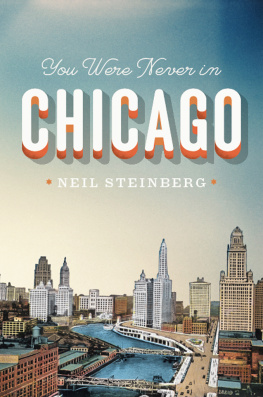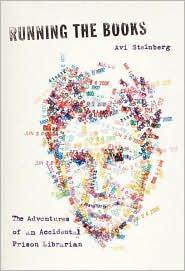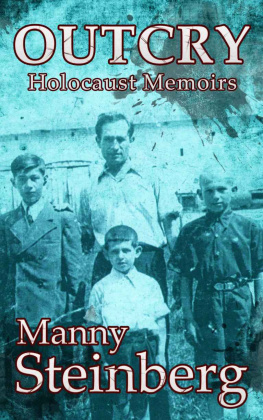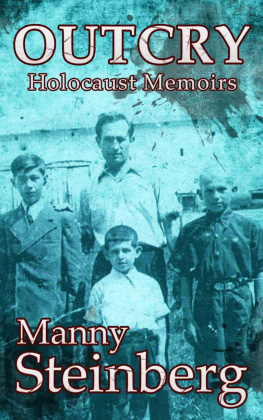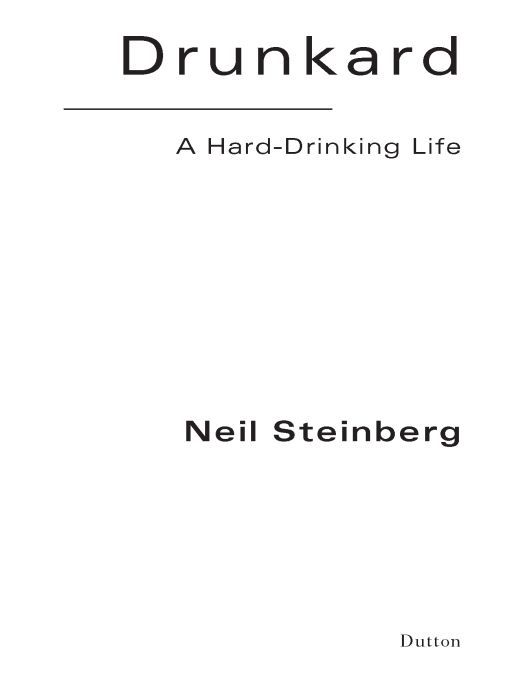Table of Contents
For my brother, Samuel Steinberg
A Note on Names
This is a book of fact. The events all happened the way they were described, in the order they occurred; the people involved are real individuals who said the things I quote them saying, based on notes taken at the time, on printed records and on memory. No one is a composite or imaginary character.
Some names, however, have been changed.
The Chapman Center at Highland Park Hospital is a real place, and I kept its name because I think the treatment there was, in the main, beneficial, and I want readers to be able to avail themselves of it without being forced to resort to sleuthing. I changed the names of the professionals who worked with me there, however, so that I might describe them freely without embarrassing them or subjecting them to unwanted public attention.
All the names of the fellow patients in rehab and the people I encounter in the program, as well as various concerned neighbors, have also been changed, even those who wanted their names used, because of the sensitive and private nature of recovery and what they had to say. I also changed some identifying details for the same reason. I understand that the anonymous in Alcoholics Anonymous is taken very seriously, and some members will be horrified at the idea of my repeating anything said within these rooms, even if the identity of the speaker is disguised. But I did not feel I could adequately tell my story without referring to a little of what happens at meetings, and they should know that I considered the matter carefully before proceeding as I did. Of course AA in no way endorses or is responsible for this book.
My colleagues at the Chicago Sun-Times are identified by their real names, with the exception of Prissy, who was aghast at the thought of being in a book, as well as Peter Baker, who could use a fig leaf of privacy given his very public life, and Walt Decker, whose story seemed too personal and raw to attribute.
My family is all identified by their real names, with the exception of Aunt Betty, which is a pseudonym.
Authors Note
If there are only two types of storiesa stranger arrives in town or a man goes on a journeythen this book is both. Well into middle age, when I thought everything in my life was settled, an unexpected visitor arrived and moved in, so slowly that I barely noticed until he was part of me, our souls merged, until his seemingly inseparable presence forced me to go on a journey that changed the type of person I am.
Perhaps this storyabout a suburban guy, a functioning drunkard who fell down the rabbit hole of alcoholism and then had to struggle backwill relate to you. Perhaps youre facing the same problem yourself, or trying not to face it, or know someone who is facing or avoiding it. Perhaps you like to stand at a bar, or enjoy other delicious and perilous recreations, and wonder about what its like for those who stray over the line and are lost.
Whoever you are, here is my story. While I do hope that it helps you if you need helphope that it lets you see change is possible, that your life today does not have to be your life as it always will bethat isnt really why I tell it. I tell it because that is what people in my situation do. We tell our stories because we have to, because doing so somehow redeems us.
Yet why not say what happened?
Robert Lowell
I
Ha, Ha, You in Jail
Introduction
The thing about jail is it has bars and guards and they wont let you out.
That might sound obvious, and the part about bars and guards certainly is obvious. But the key word in the first sentence, when in jail, is you. They wont let you out. Because jail is something thats supposed to happen to other people. Lesser people. Desperate junkies who rob liquor stores, warped crazies who shoot their neighbors, heartless men who murder their wives for the insurance money. Criminals. People worthy of jail.
Suddenly into the mix pops you and its a shock, a sharp twist in reality and a hint that your life is not unfolding as you planned.
Or, to put it succinctly, as a previous occupant of my cell did when he scratched this bit of taunting graffiti into the beige metal wall: HA, HA, YOU IN JAIL.
Now and then I peer through the bars. Not expecting anything, just to pass the time. The hallway is empty and dead-of-night silent, glazed brick, except for a security camera I can barely see, hard to the right. Directly in front is a high, small window where, for a while, a crescent moon appears. I am thankful for that moon, as thankful as I can be for anything under the circumstances.
The bars do not rattle. That only happens in the movies. Instead, the bars are the most solid substance I have ever held thick, cold, immobile. Trying to shake them is like kicking a fire hydrant.
Once an hour they check on me, to see that I havent killed myself. Not during the few moments I am at the bars, but while I am lying in my bunk, gazing blankly at the ceiling, or turned to face the wall. I hear a distant, complex, echoing clank, then footsteps, and feel a brief sense of somebodys head flashing by, even though I keep my eyes on the ceiling or on the wall. One time the guarda womansays, Still awake? with a touch of maternal concern in her voice, and I am grateful for that too.
Suicide certainly crosses my mind. I could hang myself from the bars. But the intent never settles seriously upon meits more a tormenting possibility, one of the countless agonies that lurch into mind, along with head-slapping regret and the irrational dread that the police station could flood and I would drown here, reaching through the bars, calling for help that doesnt come as the rising icy waters foam and rush around me.
But I wouldnt do it, wouldnt hang myself on the bars. First, Id probably goof it up and merely look ridiculous, caught up in my homemade rope, shoulder pressed hard against my cheek, suspended like a marionette. And second, I couldnt do that to the boys. It isnt a weight I want my sons to carry around. No, my fathers dead. He hung himself in jail when I was nine.
Suicide must be a common impulse, though. Thats why my clothes were takenshirts can be shredded into ropes. They also took my shoes. Laces are strong enough to do the job in a pinch. Even my eyeglasses, though how a person could kill himself with a delicate pair of wire-framed spectacles is beyond my imagination. They dress me in a white paper jumpsuit designed to thwart being turned into an effective rope, since it starts to rip apart after just one night of twisting and tossing and clawing at myself on the thin black foam mattress.
My only companions in the cell are a pair of blankets made out of some kind of disposable black felt. The police officer processing metaking the fingerprints and photosobserves that typically prisoners are given one blanket. Implying that my getting two blankets constitutes soft treatment. And while I appreciate the gesture, and keep one blanket wrapped around me like a shawl, there is also something abject about being wrapped in a blanket in a cell. A lunatic who haunts the grand Wacker Drive colonnade of the Civic Opera Building in downtown Chicago sometimes wraps himself in a dark blanket, hand outstretched, crying loudly for pity. Suddenly he and I have too much in common.







